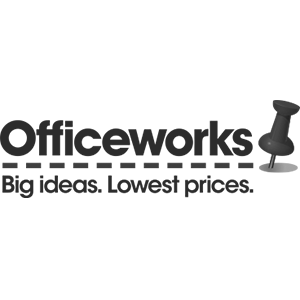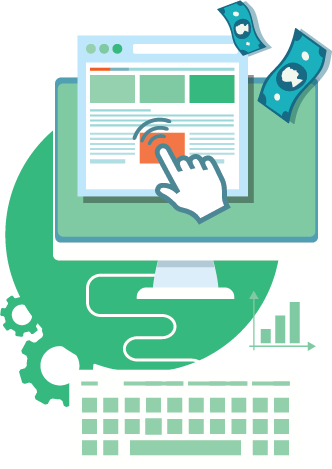
You can’t convert visitors into customers if you can’t keep them on the darn web page long enough to read the sales message.
That makes sense, right?
What you may not properly appreciate, though, is exactly how impatient these precious potential customers are. If your page hasn’t loaded by the time 4 seconds rolls around, there’s a good chance that about one-third of these potential sales will abandon the website.
If you don’t believe it, think of your own online habits. Notice how itchy that trigger finger gets after just a few seconds? The reality is that site speed has a direct effect on your bottom line. In other words, a slow-loading site means less revenue and you might have to start shopping in the bargain aisle!
Online entrepreneurs are obsessive about CRO. And, they should be. Optimizers will spend hours testing slight sales copy variations, as well as button placement and color and location on a web page.
Unfortunately, we have a sneaking suspicion too many of our sisters and brethren are missing out on the importance of a little thing called site speed.
Here’s the bottom line: when your site loads too slowly, a sizeable percentage of users bail out completely and never get the chance to see and click on all those perfectly-placed, nifty-colored buttons.
When you look at it from this perspective, it starts to make site speed assume a more superior place in the larger scheme of things.
How fast should a website load?
If your pages come in at two seconds or less, you’re doing spiffy and probably aren’t losing too many customers to poor performance.
The average page load speed is in the 2-3 second range.
If you go past that, you’re tempting fate, friends.
By the time you reach 4+ seconds of page load time, let’s just say people who might have decided to give you their money are bailing off your page like rats leaving the Titanic.
But does it really matter THAT much?
Who asked that question? To the back of the class with you! Yes, it matters that much. A study by Blue Corona, reports the following:
* 79% of customers who are dissatisfied with a website’s performance won’t give it a second chance in the future.
* A decline of a single second in page load speed means 11% fewer people will see the page.
* A decline of a single second in page load speed also means you will notice 7% fewer conversions (not surprising, since fewer people are seeing the message).
It’s not hard to see why. What is the secret to the bottom line success of your business? Customers. How do customers find you?
In today’s world – more often than not – it’s through your website. With over 2 billion people shopping online by 2019, the penalty for site abandonment will continue to increase.
We live in an instant gratification world, and if your website doesn’t provide that, there are hundreds of others that will.
It’s as easy as hitting the “back” button and – believe it – they will.
Did you know one of the critical metrics Google looks at when putting together search results is page load speed?
Sorry. Probably just made a bad day worse, but if you’re worried about how fast your pages load, you need to know this stuff.
Google has page loading speed built into its algorithms. If your page doesn’t load fast enough to meet the spider’s criteria, you’re out of luck. It’ll move onto the next page without indexing yours at all. We don’t need to remind you how important natural ranking in search results are, do we?
Pretty sure you got this already, but in case you forgot – every page on your website needs to load in four seconds or less. CSS optimization is one of the key ways to achieve this.
Are you open to a suggestion?
While your host probably has some sort of page load speed tester or offers a summary of how your website performs, it’s suggested you do your own testing. Not saying hosts are untrustworthy, but it’s bad for business if they let a bunch of slow-loading data start circulating.
If you’re serious about your site’s performance, get proactive about knowing your page loading numbers!
There are a ton of things you can do to prod a pokey web page into better performance. This isn’t meant to be a treatise on increasing page speed as much as it is a wake up call to at least be aware of the problem. Still, the following are areas to pay attention to:
* Too many redirects
* Images not compressed and optimized
* Too many plugins and/or scripts
* Resources not cached – too many resources
* Ugly CSS
* No priority to visible content
* Font is too small
These are just a few of the many seemingly insignificant issues with a web page that, when taken together, cause a big fat slowdown.
The lesson here is not to panic and ditch the whole idea of making a living online, choosing instead to retire to an unplugged monastery in the Tibetan mountains.
Make yourself a list of ways to improve page speed and address each in a systematic fashion.
By the time you’re done, you should have a nicely loading website that comes in under that magic 4 second barrier.
For practical, “how to advice” and specific tools you can use to optimize your site speed, check out this webinar replay.
What tools or strategies have you found help you optimize your page speed? Share your thoughts in the comments section below.
A primer explaining the 4 different types of tests you can run, what they mean, and how you can use each to improve your competitive testing advantage.
One of the most debated testing topics is how large does my sample size need to be to get trustworthy test results? Some argue samples of more than 120,000 visitors per variant are needed to begin to see trustworthy test results. Ishan Goel of VWO disagrees. What does he think is needed to get trustworthy test results? Listen to this webinar recording to find out.
To get users clicking your content, which format works best: buttons or links. A series of 8 real-life A/B tests suggests one format consistently outperforms. Can you guess which version wins? Checkout the mini meta analysis to find out.














Thanks for sharing this information.
Most commonly I see companies having too many redirects which affects page load speed time. SO I agree, this is something that has to be a priority to address! Another important factor is quality of photography, we recommend using jpegs, which also helps speed up the website.